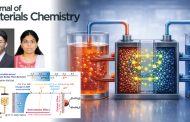A groundbreaking technological advancement that significantly extends the lifespan of lithium-ion batteries has been achieved through a novel sintering process.
A research team, led by Professor Hyun-Wook Lee in the School of Energy and Chemical Engineering at UNIST, in collaboration with Professor Rodney S. Ruoff, Director of the IBS Center for Multidimensional Carbon Materials (CMCM) at UNIST and affiliated with the Department of Chemistry, along with Dr. Won Kyung Seong of IBS CMCM, Professor Sunghwan Jin of Kangwon National University, and Professor Yuzhang Li of UCLA, has developed a new rapid Joule heating-based sintering method. This innovative approach precisely controls the microstructural defects in high-Nickel (Ni) layered oxide cathodes, dramatically improving their longevity and rate performance.
High-Nickel cathodes are widely used in commercial batteries due to their high capacity and energy density, making them essential components in electric vehicles and fast-charging devices. However, their low thermal stability often leads to structural degradation during high-temperature processing, resulting in undesirable particle growth and porosity that compromise battery lifespan and mechanical integrity.
The research team identified that excessive particle coalescence during conventional high-temperature sintering, coupled with pore formation at lower temperatures, are primary factors degrading battery performance. Analyzing these issues from a sintering dynamics perspective, they introduced a rapid Joule heating system capable of reaching high temperatures within seconds. This approach shifts the dominant diffusion mechanisms during sintering, preventing abnormal grain growth and pore formation.
By promoting uniform densification of small particles rather than their aggregation into larger grains, the team effectively suppressed microstructural defects. This process results in cathodes with higher density, fewer pores, and enhanced mechanical strength, leading to markedly improved battery lifespan and structural stability.
This study demonstrates that controlling the microstructural evolution during sintering is crucial for enhancing the mechanical and electrochemical stability of high-Nickel cathodes. Precise regulation of the sintering process at a fundamental level paves the way for manufacturing next-generation high-energy-density, long-lasting lithium-ion batteries.
Professor Lee commented, “This research goes beyond simple adjustments to heat-treatment conditions. It represents a fundamental, principle-based approach to comprehensively understanding and controlling the sintering behavior of cathode materials. We believe this methodology can serve as a foundation for optimizing sintering processes across various oxide-based electrode materials in the future.”
Funded by the Korea Institute of Science and Technology (KIST) and the National Research Foundation of Korea (NRF), this research was published online in the prestigious journal Advanced Materials on August 4, 2025.
Journal Reference
Min-Ho Kim, Jeongwoo Seo, Jaeyong Shin, et al., “Microstructural Evolution Dynamics in Rapid Joule Heating Densification of High-Nickel Cathodes,” Adv., Mater., (2025).












